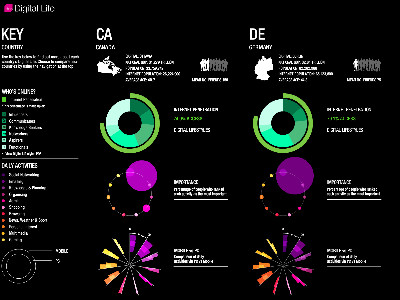Psychologists explore myths, realities and offer guidance for parents
Social media present risks and benefits to children but parents who try to secretly monitor their kids’ activities online are wasting their time, according to a presentation at the 119th Annual Convention of the American Psychological Association.
“While nobody can deny that Facebook has altered the landscape of social interaction, particularly among young people, we are just now starting to see solid psychological research demonstrating both the positives and the negatives,” said Larry D. Rosen, PhD, professor of psychology at California State University, Dominguez Hills.
In a plenary talk entitled, “Poke Me: How Social Networks Can Both Help and Harm Our Kids,” Rosen discussed potential adverse effects, including:
- Teens who use Facebook more often show more narcissistic tendencies while young adults who have a strong Facebook presence show more signs of other psychological disorders, including antisocial behaviors, mania and aggressive tendencies.
- Daily overuse of media and technology has a negative effect on the health of all children, preteens and teenagers by making them more prone to anxiety, depression, and other psychological disorders, as well as by making them more susceptible to future health problems.
• Facebook can be distracting and can negatively impact learning. Studies found that middle school, high school and college students who checked Facebook at least once during a 15-minute study period achieved lower grades.
Rosen said new research has also found positive influences linked to social networking, including:
- Young adults who spend more time on Facebook are better at showing “virtual empathy” to their online friends.
- Online social networking can help introverted adolescents learn how to socialize behind the safety of various screens, ranging from a two-inch smartphone to a 17-inch laptop.
- Social networking can provide tools for teaching in compelling ways that engage young students.
For parents, Rosen offered guidance. “If you feel that you have to use some sort of computer program to surreptitiously monitor your child’s social networking, you are wasting your time. Your child will find a workaround in a matter of minutes,” he said. “You have to start talking about appropriate technology use early and often and build trust, so that when there is a problem, whether it is being bullied or seeing a disturbing image, your child will talk to you about it.”
He encouraged parents to assess their child’s activities on social networking sites, and discuss removing inappropriate content or connections to people who appear problematic. Parents also need to pay attention to the online trends and the latest technologies, websites and applications children are using, he said.
“Communication is the crux of parenting. You need to talk to your kids, or rather, listen to them,” Rosen said. “The ratio of parent listen to parent talk should be at least five-to-one. Talk one minute and listen for five.”
Source: American Psychological Association “Poke Me: How Social Networks Can Both Help and Harm Our Kids” Larry D. Rosen, PhD, California State University, Dominguez Hills


